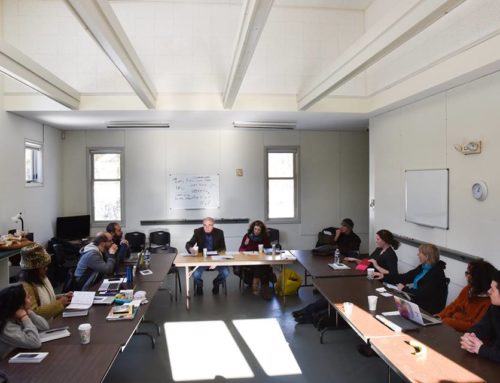As you face the challenge of writing your first draft there is one cardinal rule you should always keep in mind. It’s actually one of the simplest rules to follow, but often one of the hardest to put into practice. It has to do with the writer’s urge to share his or her work, to communicate to others what you are creating on the page.
In a nutshell, the rule is to resist the powerful temptation to invite other people to take a look at your first draft pages and show them the progress you’re making–to get reinforcement, encouragement, and positive response in order to garner the emotional fuel you need to continue the often arduous task of trudging through the writing of that initial draft.
As you work through that first scripting of your story from beginning to end it’s absolutely essential that you fight against this urge to share your pages as they’re being produced because doing so is the one sure-fire way to lose control of your own artistic voice and vision, at least how it relates to the tale you’re struggling to tell.
Without fail, friends and trusted colleagues are always eager to step forward to take a look as your pages materialize. They like you, they want to help you, to encourage you, to give you positive feedback, to make you feel good about all that effort you’re putting into your project. And along the way, they love to point out what they really liked, what surprised them, where it took them as your story progressed, what it reminded them of as they consumed your pages–all in an effort to make you feel wonderful about yourself as a writer and storyteller.
The problem is, if you do succumb to this temptation to share your work while it’s being given birth in your first draft, you destroy entirely your own private artistic experience with your material. It is, instead, forever contaminated with the well-meaning input of those friends who talked you into letting them see your pages when you were in a moment of weakness and fear that what you were producing was terrible. You won’t be able to get their feedback out of your head. Their attempts to encourage you, to bolster your attitude towards what’s on those early pages, to “help” you write something you can be completely proud of are all well-meaning efforts and are delivered with love. After all, these folks are your friends and want nothing more than for you to have amazing success as a writer.
What they don’t understand is that the last thing you need as you struggle through your first draft is their input. This is your story and your telling of it. You deserve to have it stay a private and locked experience between you and the characters who populate your tale as long as possible and certainly through the writing of a completed draft and a first rewrite. There comes a time soon enough that others can level their thoughts on what you’ve created, but you owe it to yourself to keep it to yourself at least through that first pass and until after you’ve had a chance to privately take a look at what you’ve come up with.
You can follow me on Twitter @eitherorfilms or @mfastagescreen. I’m also on Facebook at buzzmclaughlinscriptconsulting.







Leave A Comment